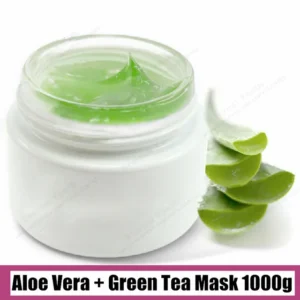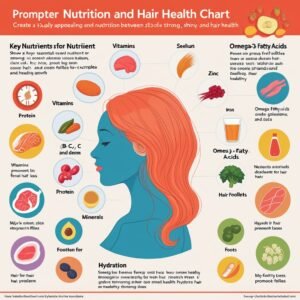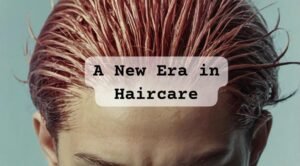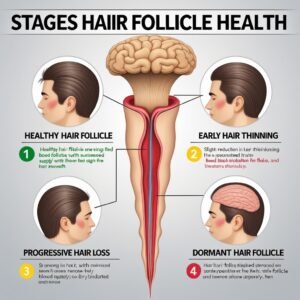
Healthy eating and diet concepts. Colorful spring salad on rustic white wood table. Included ingredients: Chicken, tomatoes, broccoli, lettuce, bell peppers, mushroom, carrots, radicchio, almonds.
Diet and Nutrition to control Dandruff

When it comes to controlling dandruff, a healthy diet and proper nutrition can definitely help. Including foods rich in Omega-3 fatty acids, zinc, and vitamin B can promote scalp health. Some examples are fatty fish, nuts, seeds, whole grains, and leafy greens.
When it comes to natural remedies for dandruff, there are a few options you can try. One is using apple cider vinegar. You can mix equal parts apple cider vinegar and water, then apply it to your scalp before shampooing. Another option is tea tree oil, which has antifungal properties. Just add a few drops to your shampoo and wash your hair as usual.

Mix 2 tablespoons of aloe vera gel with a few drops of tea tree oil. Massage the mixture into your scalp and let it sit for 20–30 minutes before washing it out. Aloe vera has moisturizing properties, and tea tree oil has antifungal properties that can help fight dandruff.

While diet alone might not directly control dandruff, certain nutrients can support scalp health. Foods rich in omega-3 fatty acids, vitamins B and E, zinc, and antioxidants, like fruits and vegetables, can promote a healthy scalp and potentially reduce dandruff.
Also, staying hydrated is crucial for overall skin health, including the scalp. However, it’s essential to consult with a dermatologist for personalized advice and treatment options for dandruff management.
Nutrition plays a supportive role in controlling dandruff. Some nutrients that can help include:
Role of controlling dandruff:
Diet for control dandruff
1. Omega-3 fatty acids: Found in fatty fish like salmon, walnuts, and flaxseeds, they support scalp health and reduce inflammation
2. B vitamins: Particularly B6 (found in chickpeas, bananas, and fortified cereals) and B12 (found in meat, fish, and dairy), they help maintain a healthy scalp and hair.
3. Vitamin E: Present in nuts, seeds, and leafy greens, it acts as an antioxidant, protecting the scalp from damage.
4. Zinc: Found in seafood, lean meats, nuts, and seeds, it supports the immune system and may help reduce dandruff.
5. Antioxidants: Fruits and vegetables rich in antioxidants, like berries, citrus fruits, and leafy greens, help combat oxidative stress on the scalp.
Incorporating these nutrients into your diet along with good scalp hygiene and appropriate hair care products can contribute to managing dandruff effectively. However, it’s essential to consult with a healthcare professional for personalized advice.
Several home remedies for controlling dandruff include:
1. Apple Cider Vinegar (ACV) Rinse: Dilute ACV with water and apply it to your scalp before shampooing. Leave it on for a few minutes, then rinse. ACV may help balance the pH of your scalp and reduce dandruff.
2. Tea Tree Oil: Add a few drops of tea tree oil to your shampoo or dilute it with a carrier oil like coconut oil and massage it into your scalp. Tea tree oil has anti-fungal properties that can help combat dandruff-causing fungi.
3. Coconut Oil Massage warm coconut oil into your scalp and leave it on for at least 30 minutes before shampooing. Coconut oil moisturizes the scalp and has anti-inflammatory and anti-fungal properties.
4. Aloe Vera Gel: Apply pure aloe vera gel directly to your scalp and leave it on for 15-20 minutes before rinsing. aloe vera has soothing and anti-inflammatory properties that may alleviate the itching and irritation associated with dandruff.
5. Baking Soda Scrub: Mix baking soda with water to form a paste and massage it into your scalp before shampooing. Baking soda can help exfoliate dead skin cells and reduce dandruff.
6. Essential Oils: Besides tea tree oil, other essential oils like peppermint, lavender, and rosemary may also help control dandruff. Mix a few drops with a carrier oil and massage into your scalp, or add them to your shampoo.
7. Proper Hair Care: Ensure you’re using a gentle, pH-balanced shampoo and conditioner suitable for your scalp type. Avoid over washing, as it can strip the scalp of its natural oils, leading to dryness and dandruff.
Shampoos designed to control dandruff typically contain active ingredients that target the underlying causes, such as fungal overgrowth or excessive oil production. Here are some types of shampoos commonly used to control dandruff:
Diet and Nutrition to control Dandruff
1. Anti-fungal Shampoos: These shampoos contain active ingredients like ketoconazole, selenium sulfide, or zinc which help combat the fungi that contribute to dandruff. They’re effective for treating mild to moderate dandruff and often require regular use for best results.
2. Salicylic Acid Shampoos: Salicylic acid helps exfoliate dead skin cells from the scalp, reducing flakiness and itching. These shampoos are particularly suitable for people with oily scalp types.
3. Coal Tar Shampoos: Coal tar slows down the growth of skin cells on the scalp and reduces inflammation, helping to alleviate dandruff symptoms. They’re often used for more severe cases of dandruff but may have a strong odor and can cause sensitivity to sunlight.
4. Zinc Pyrithione Shampoos: Zinc pyrithione has anti-fungal and anti-bacterial properties, making it effective against dandruff-causing fungi and bacteria. It also helps regulate sebum production on the scalp.
5. Sulfate-Free Shampoos: Sulfates can strip the scalp of its natural oils, leading to dryness and exacerbating dandruff. Sulfate-free shampoos are gentler and less likely to cause irritation or dry
While diet alone may not completely control dandruff, incorporating certain foods rich in essential nutrients can support scalp health and reduce dandruff symptoms. Here’s a sample diet plan to help manage dandruff:
Diet and Nutrition to control Dandruff
Oatmeal topped with flaxseeds and fresh berries: Oats provide fiber and B vitamins, while flaxseeds offer omega-3 fatty acids that support scalp health. Berries are rich in antioxidants, which may reduce inflammation.
Mid-Morning Snack:
Greek yogurt with almonds: Greek yogurt is a good source of B vitamins and probiotics, which promote a healthy scalp. Almonds provide vitamin E, an antioxidant that helps maintain skin health.
Lunch: Grilled salmon with quinoa and steamed broccoli: Salmon is high in omega-3 fatty acids, which have anti-inflammatory properties and support scalp health. Quinoa is a whole grain rich in B vitamins, while broccoli provides vitamin C and antioxidants.
Afternoon Snack:
Carrot sticks with hummus: Carrots are rich in beta-carotene, which the body converts to vitamin A, essential for a healthy scalp. Hummus made from chickpeas provides protein and B vitamins.
Dinner:
Grilled chicken breast with brown rice and spinach salad: Chicken is a lean source of protein, while brown rice offers B vitamins and fiber. Spinach is rich in iron and vitamin E, which support scalp health.
Before Bed Snack:
Herbal tea with a handful of walnuts: Walnuts are high in omega-3 fatty acids and vitamin E, both beneficial for scalp health. Herbal tea can help promote relaxation and reduce stress, which may contribute to dandruff.
Diet and Nutrition to control Dandruff
1. Fruits and Vegetables: Aim to include a variety of colorful fruits and vegetables in your diet. They are rich in vitamins, minerals, and antioxidants essential for healthy skin, including the scalp.
2. Whole Grains: whole grains such as brown rice, quinoa, oats, and whole wheat bread. They provide fiber, B vitamins, and minerals that support overall health, including the scalp.
3. Lean Protein Sources: Incorporate lean protein sources like poultry, fish, eggs, tofu, legumes, and nuts into your meals. Protein is crucial for hair structure and growth, and deficiencies can contribute to scalp issues.
4. Healthy Fats: Include sources of healthy fats such as fatty fish (salmon, mackerel), avocado, nuts, seeds, and olive oil. Omega-3 fatty acids, in particular, are beneficial for scalp health and may help reduce inflammation associated with dandruff.
5. Dairy or Dairy Alternatives: Choose low-fat dairy products or dairy alternatives fortified with calcium and vitamin D. These nutrients are





